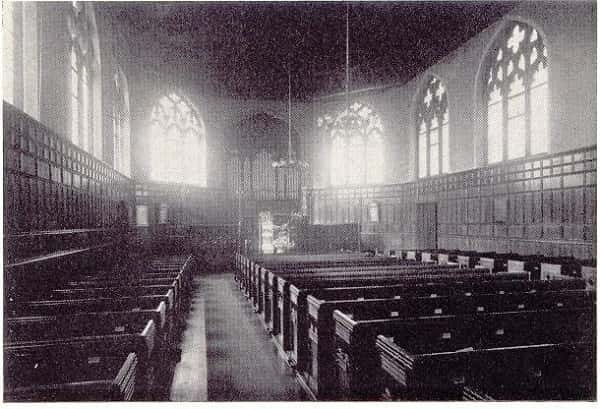 As we’re told in the Book of Acts, there were Persians, probably Persian Jews, there in Jerusalem when the tongues of flame ignited the fire that became the Church, on Pentecost in the year that it all began. We really don’t know what year that was. It may have been as early as 29 AD (unlikely), or as late as 35 AD (also unlikely), but was probably somewhere between those dates. We must remember that the whole scheme of dating things as “BC” and “AD” hadn’t been invented, yet, and wouldn’t be for several hundred years. Anyway, it happened, and so there were Persian Christians from the earliest minutes of the Church. But that doesn’t mean that there was a Church there.
As we’re told in the Book of Acts, there were Persians, probably Persian Jews, there in Jerusalem when the tongues of flame ignited the fire that became the Church, on Pentecost in the year that it all began. We really don’t know what year that was. It may have been as early as 29 AD (unlikely), or as late as 35 AD (also unlikely), but was probably somewhere between those dates. We must remember that the whole scheme of dating things as “BC” and “AD” hadn’t been invented, yet, and wouldn’t be for several hundred years. Anyway, it happened, and so there were Persian Christians from the earliest minutes of the Church. But that doesn’t mean that there was a Church there.

One of the great mysteries of the Christian faith is the way in which so many different ways of worshipping grew up among so many different peoples, while believing essentially the same things. Now, of course, there were those who believed other things, too. We’ve mentioned them in this space, before, and perhaps we’ll be able to devote some time to them, someday, but for now, we’re just trying to get our arms around the catholic Church: the one we belong to, most of us. That is, the Roman rite, Greek Orthodox rite, the Coptic, the Assyrian, the Russian, the Ethiopian, the Reformed, the Presbyterian, the Lutheran, and the Anglican, which necessarily includes the Baptist, Methodist, Restoration, Pentecostal, Congregational and several others. No, I didn’t necessarily just call you a “Catholic”, though most of you (and us) are. It’s become traditional to capitalize “Catholic” when you mean Roman Catholic, and leave it in lower case, when you mean “universal”. Neither is correct. “Catholic”, whether capitalized or not, means “what the Church has agreed on, from the beginning”. Which “rite” we use has little or nothing to do with that belief. In the west, we use unleavened bread, generally. In the east, they’ve always used ordinary bread. For centuries, we all used wine, but since prohibition, many American evangelicals have used grape juice. As with the kind of bread, these were political decisions, not religious. We all believe that the Lord’s Supper is bread and wine. That one loaf has yeast in it, or that one cup of wine hasn’t fermented yet are mere details.
For the way we worship has indeed grown in some odd directions. Still, as early as the 7th Century, Christians were holding Palm Sunday processions in China, and those Christians there had never heard of Rome, or Constantinople either, for that matter. They were converted by missionaries from Persia, or at least the Sassanian Empire, which was based in Persia. This is kind of odd, when you think about it, for Persia was officially not a Christian place. The official religion there was Zoroastrianism, which shares some ideals with Christianity, but which is certainly not a part of the Christian Church.
